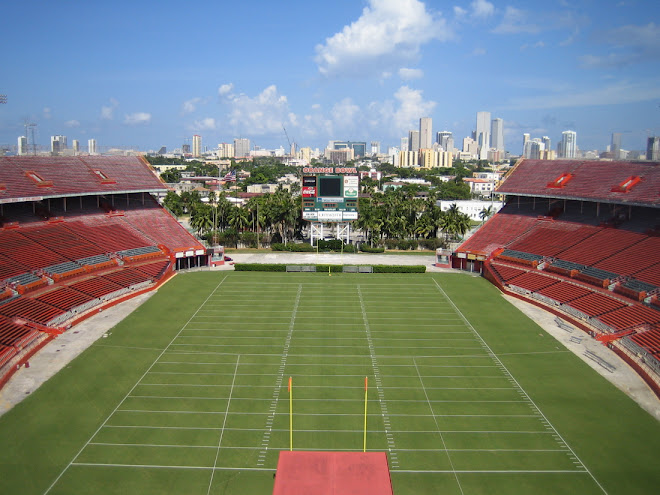
Sometimes having great potential in a demanding skill can be a curse. Former Miami Dolphins running back David Overstreet had plenty of it. In his brief life, Overstreet possessed everything scouts wanted in a runner. He had speed, slick moves, power and grace. He had been a legendary high school player in a state where high school football heroes are revered. He played at one of college football's great powerhouses. He was a first round draft choice in the National Football League. Overstreet had everything a 25-year-old man could want and then it was all taken away.
On the early morning of June 25, 1984, Overstreet was making the long journey from South Florida back to his hometown of Big Sandy, Texas. He was driving his Mercedes when he fell asleep at the wheel. The car spun out of control and crashed into a row of gas pumps at a service station near his hometown. The impact created a huge explosion and Overstreet was killed instantly. He left behind a wife and a 13-month old son--David Jr.
David Overstreet was legend on the football field before he ever went to college. He was not only a hero in his hometown of Big Sandy, he was a state hero. Deep in the Lone Star State, Overstreet was the centerpiece of one of the most powerful small high schools in Texas high school football history. He led Big Sandy High School to 3 consecutive Class B state championships. Big Sandy's teams were so dominant, they outscored the opposition 824-15 in his senior year. One of Overstreet's high school teammates was quarterback Lovie Smith, who is now the head coach of the Chicago Bears. Smith and Overstreet was part of a tiny graduation class that included just 34 students.
"Everytime David touched the ball, the odds were that he would score, " Smith said. "Not that he might score. You were surprised if he didn't". Indeed truer words couldn't have been spoken. Overstreet rushed for nearly 3,000 yards and scored an amazing 52 touchdowns in his senior year. His name is all over the Texas high school record books and his exploits became a thing of legend. College coaches from all over the nation soon decended upon the tiny Texas town to see this prodigy carry the football. After an intense rush of recruiting, Overstreet chose to play his college football for the University of Oklahoma and its head coach Barry Switzer.
When Overstreet arrived at OU in 1976, he quickly became burried in a deep pool of talented running backs that included future NFL players Elvis Peacock, Kenny King and Heisman winner Billy Sims. Playing in Oklahoma's wishbone offense, Overstreet had to share running duties with other great backs. His statistics in college would never approach what he did in high school. But he was still very dangerous carrying the football. He rushed for 1,702 yards, averaging 5.8 yards per carry and scored 16 touchdowns in his college career. In one game he gained 258 yards on 18 carries against Colorado. During the Overstreet years, Oklahoma played in four consecutive Orange Bowls on New Years Night. In his final college game, Overstreet scored a touchdown and helped the Sooners beat Florida State 18-17 in the 1981 Orange Bowl.
When his college career was over, pro scouts tabbed Overstreet was one of the best running back prospects in the country. The Miami Dolphins chose Overstreet in the first first round of the 1981 NFL Draft with the 13th overall pick. He was expected to be Miami's best breakaway speed back since the days of Mercury Morris. But negotiations stalled and the Dolphins were not able to come to a contract agreement with Overstreet. He decided to instead take his talents to the Montreal Alouettes of the Canadian Football League. He led the CFL with 962 yards as a rookie, but he also had trouble hanging on to the ball, fumbling 16 times. In 1982, injuries limited Overstreet to just 190 yards rushing for the season.
After two years of exile in Canada, Overstreet finally signed with the Dolphins in 1983. By then, Miami already had a rookie sensation named Dan Marino and the offense would revolve around Marino's right arm. Overstreet found himself struggling to make the adjustment to the NFL. He spent most of the season watching from the sidelines as Tony Nathan got the majority of the carries. He finally showed signs of potential when he gained 179 yards in the final two games of the season.
On December 31, 1983, David Overstreet played his final football game. The Dolphins lost to the Seattle Seahawks 27-20 in an AFC divisional playoff game at the Orange Bowl. Late in the game, Overstreet fumbled the ball, which was recovered by Seattle's John Harris. The fumble led to the eventual winning touchdown scored by Seattle's Curt Warner. Less than six months later, Overstreet died.
David Overstreet played only one season with the Miami Dolphins. He rushed for 392 yards and scored 3 touchdowns. His death not only stunned the Dolphin organization, it stunned the entire league. In 1984 Chicago Bears running back Walter Payton broke Jim Brown's then NFL career rushing record. After the game, Payton dedicated the record to the running backs who died young. "The motivating drive for me has been the athletes who have tried for the record and failed and for those who didn't have an opportunity such as the Overstreets (David), the Delaneys (Joe) and the Piccolos (Brian)." Overstreet is gone, but not forgotten.

No comments:
Post a Comment